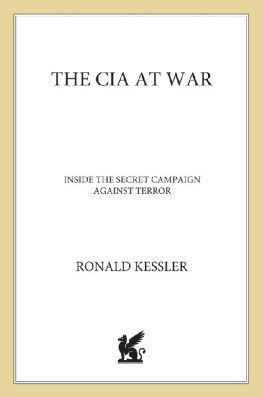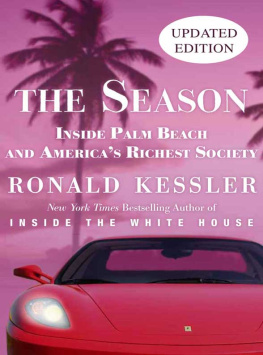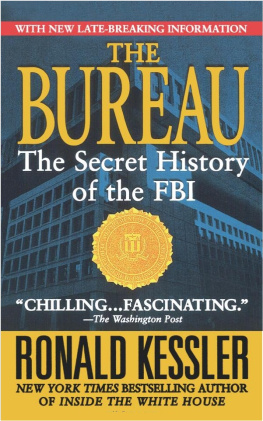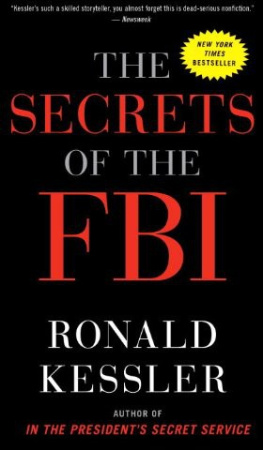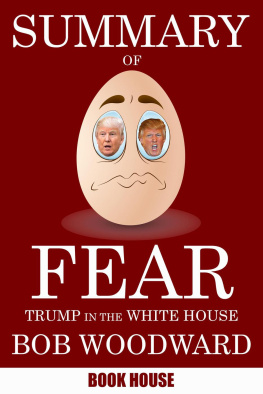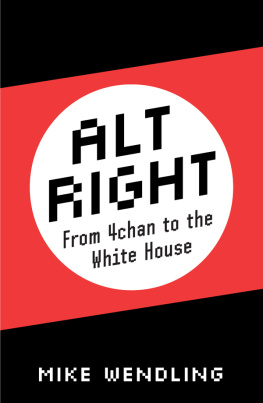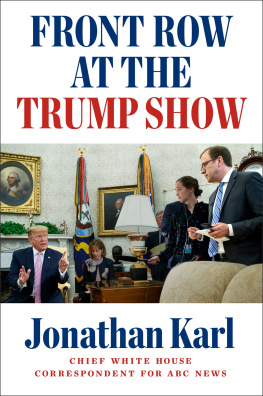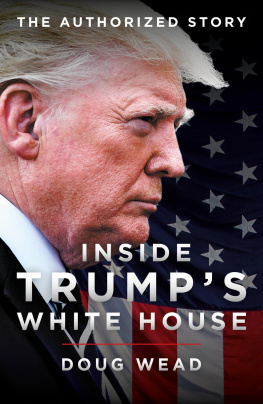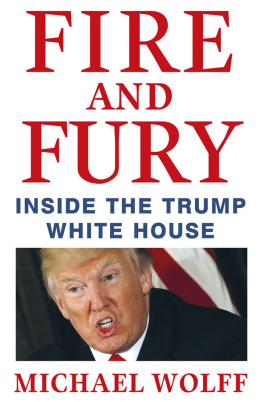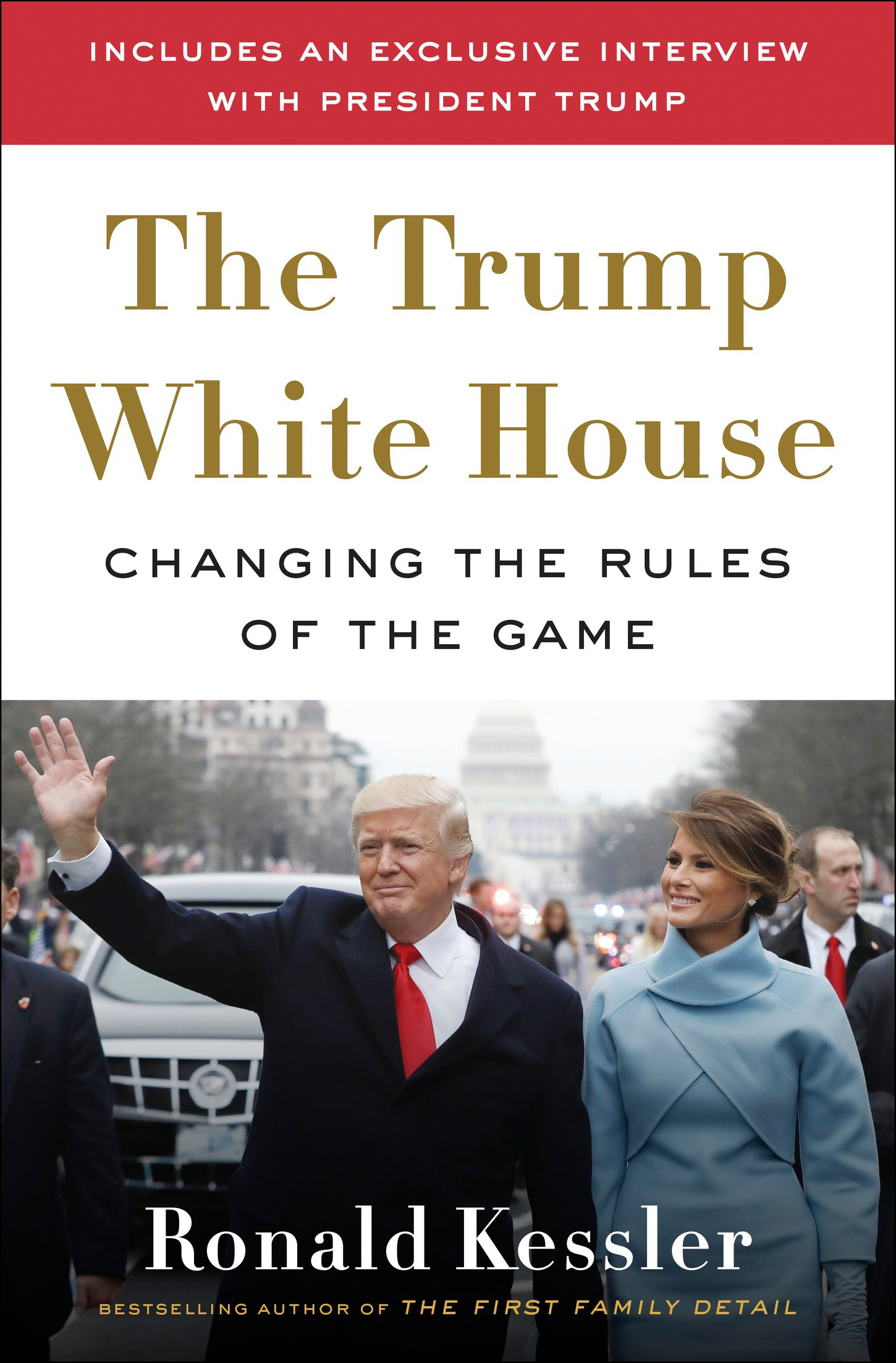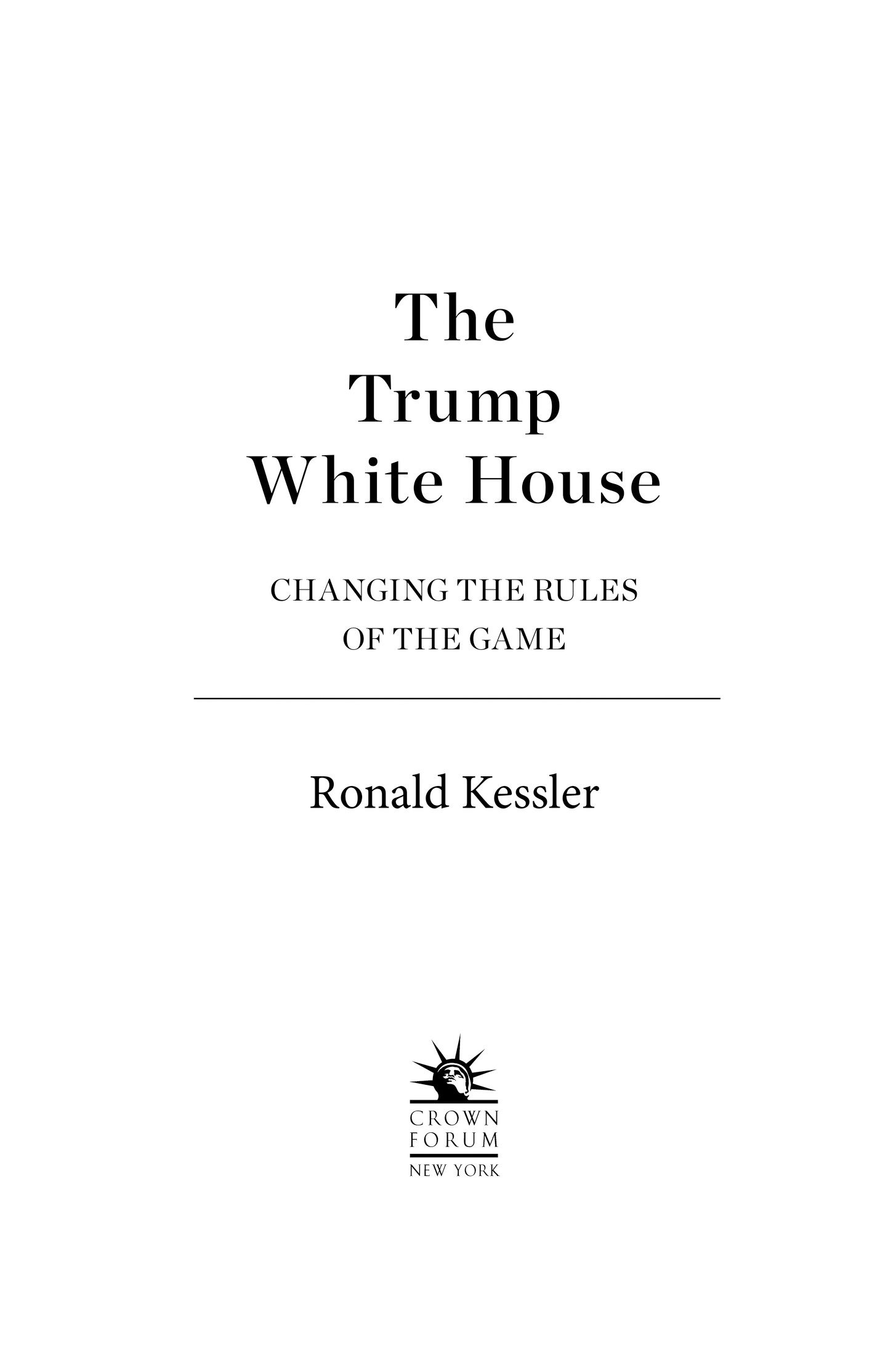Spy vs. Spy
All rights reserved.
Published in the United States by Crown Forum, an imprint of the Crown Publishing Group, a division of Penguin Random House LLC, New York.
CROWN FORUM with colophon is a registered trademark of Penguin Random House LLC.
Library of Congress Cataloging-in-Publication data is available upon request.
PROLOGUE
Having laid claim to the most powerful perch on the planet, Donald Trump and his White House aides gathered in the Oval Office after the inauguration. They were euphoric as the forty-fifth president of the United States directed government agencies to freeze government regulations, took steps to weaken Obamacare, and proclaimed a National Day of Patriotic Devotion. But already, tension was beginning to develop.
Trump had named Chief of Staff Reince Priebus and Chief Strategist Stephen Bannon as coequals. In the coming weeks, it would turn out that not only Bannon but economic adviser Gary Cohn; Trumps daughter and adviser Ivanka Trump; her husband, Senior Adviser Jared Kushner; counselor Kellyanne Conway; Communications Director Hope Hicks; Senior Adviser Stephen Miller; and eventually National Security Adviser H. R. McMaster would report directly to the president, entirely bypassing the new chief of staff.
Priebus was already feeling some initial unease after Trump, during the transition, met with Cohn, a Democrat who voted for Hillary Clinton, in his office at Trump Tower and appointed him on the spot to head the National Economic Council. Normally, a president would consult with his chief of staff and make sure he was comfortable with such an appointment. But there was nothing normal about Donald Trump.
As his presidency developed, the White House evolved into a Game of Thrones: Who would rise to the top? Who would crash and burn?
Apparently feeling resentment that she had not been named chief of staff, Kellyanne Conway, who had the title of campaign manager during the bruising campaign but actually did little more than appear on television, unleashed vicious, completely untrue attacks on Priebus and other staffers that wound up in press reports as anonymous quotes from a White House aide. Rarely was Conway even included in Oval Office meetings. From the beginning, Ivanka and Jared, along with Trumps sons, Don Trump Jr. and Eric Trump, opposed hiring her, and they continued to try to get Trump to fire her.
Meanwhile, while they later developed a cooperative relationship, Priebus and Bannon were initially in competition with each other, jockeying to influence Trump with their sometimes disparate positions.
A hard-right mover and shaker, Bannon viewed Ivanka and Jared as New York liberals whose lack of judgment made them uniquely unqualified to advise a president. Trump himself seemed to agree. At one point, he flatly told Jared and Ivanka that they never should have left New York and made it clear to them that he would not mind if they gave up their White House roles.
Look at Jared, he looks like a little boy, like a child, Trump remarked to aides as he watched Kushner on TV speaking to the press.
Jared and Ivanka, in turn, waged a daily battle through their advice to Trump and whispers to the press against the conservatives on the payroll: Priebus, Bannon, Conway, Miller, and Press Secretary Sean Spicer. The couple seemed to have envisioned the White House as a land of milk and honey, where they would exercise power over other aides by virtue of their relationship to the president. When they had to butt heads with other White House power centers, they became disappointed and tried to rid the staff of rivals and replace them with the likes of Anthony Scaramucci.
For all the turmoil and internal feuding, Trumps aides agreed on one thing: Melania Trump, who often weighed in with her opinion at strategy sessions, had impeccable judgment.
Melanias a good influence at keeping things focused on the main thing and not being in the weeds over a lot of small stuff, Priebus says. She has good political sense and comes down the right way on what the focus and agenda needs to be.
Melania is the classiest thing in the White House by two orders of magnitude, Bannon says.
The internal strife led to a continuing stream of often false swipes in the media aimed at each of Trumps White House staff members. And members of the media, who mocked Trump among themselves as a fool and dangerous, were only too glad to run with the latest story denigrating the president and his choices of White House aides.
On that first day, Zeke Miller of Time was already incorrectly reporting that Trump had removed a bust of Martin Luther King Jr. from the Oval Office. Trump only added to the negative coverage by making outlandish claims, either directly or through Spicer, who began his tenure looking uncomfortable trying to push Trumps narrative that the turnout for the inauguration was the largest in history. Trump made the lives of staffers even more miserable by unleashing screaming tirades on aides over often minor shortcomings or misperceived mistakes.
But beyond the outrageous comments and the tweeting, beyond the infighting and dissension, there was another story that the media largely ignored: sweeping presidential action that indeed was making America great again. Never before has an American president had so much impact on the country and the world in so short a time as Donald Trump.
In a matter of months after Trump took office, consumer confidence hit an all-time high, job growth spurted, CEOs said the removal of regulations was spurring them to expand and hire more workers, unemployment plummeted to the lowest level in seventeen years, the stock market zoomed to repeated record highs, manufacturing activity reached a thirteen-year high, companies began reversing plans to ship production overseas, illegal border crossings from Mexico plunged by 76 percent, border arrests dropped 25 percent, and an outstanding conservative appeals court judge took his seat on the Supreme Court.
At the same time, ISIS was nearly defeated, Arab countries banded together to stop financing terrorists and promoting radical Islamic ideology, both China and Russia took the unprecedented action of voting at the United Nations to impose sanctions on the threat that was North Korea, and Trumps decision to send missiles into Syria because of its use of chemical weapons and his strident warnings to North Korean leader Kim Jong-un made it clear to adversaries that they take on the United States at their peril.


